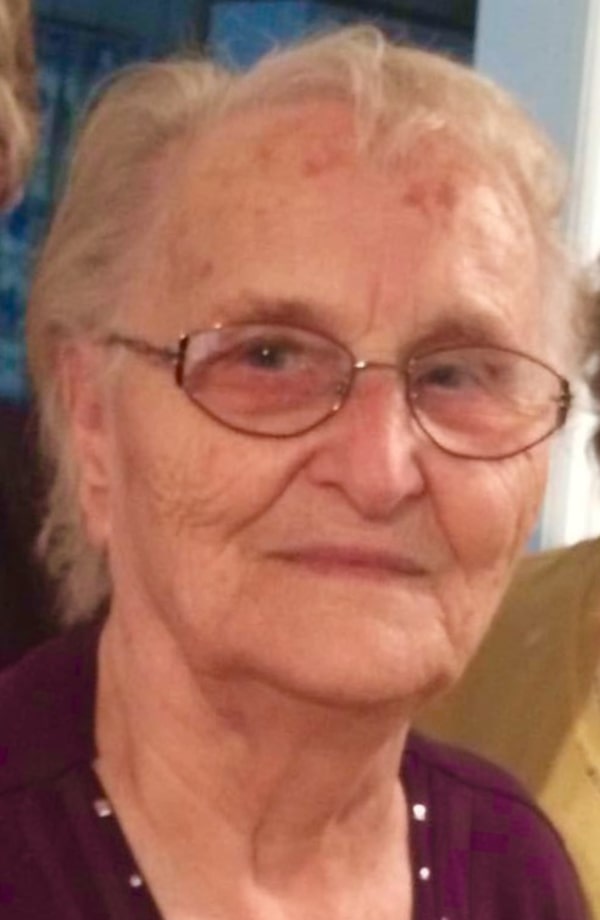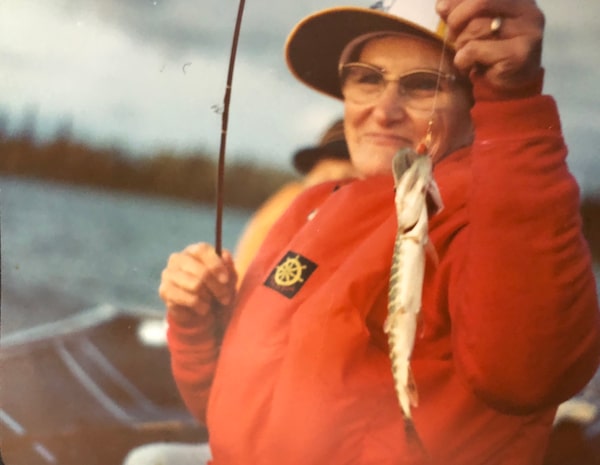
Annie Molitwenik.Handout
Annie Molitwenik: Grandmother. Storyteller. Homesteader. Cook. Born Oct. 22, 1922, in Vita, Man.; died Oct. 25, 2018, in Prince Albert, Sask., of natural causes; aged 96.
Annie Molitwenik’s life is part of the story of Saskatchewan. Her family homesteaded near Samburg, Sask., before moving to Snowden, where the land was better. The family grew to 14 children (she was third-oldest), three would die unexpectedly. In 1942, Annie’s father died and her mother struggled to raise the 10 children still living at home.
That same year, Annie met Peter Molitwenik at a festival in Weirdale, Sask. Pete was a Ukrainian immigrant who understood the realities of survival in northern Saskatchewan. They both believed they had met their lifelong companion and married in 1944. They were right: Annie and Peter were together until his death in 1990.
Their farm in northern Saskatchewan was a gathering place. Annie was a storyteller, telling stories about her family, living through the Depression, breaking farmland, what it was like when power and indoor plumbing were connected for the first time and getting legal advice from a lawyer named John Diefenbaker.

Annie taught me how to clean a jackfish, which mushrooms were edible and where the blueberries grew.Handout
Annie’s clearest expression of love was the food she made. For her, success was measured by the family being warm and fed, and by that measure she was very successful. She cooked traditional Ukrainian foods and was a master baker. Up to her final days, there was always a fridge full of ginger snaps, jams, preserves, pickles, a candy dish, a full freezer and a healthy garden. This was not for her, it was for guests and family.
She was a strong and tough woman, her life experiences shaped her character. That toughness came at a cost. Annie was most demanding of those closest to her. She could be hard on her children, Sandra, Jim and Pat, but she was so very proud of them. As her grandchild, my perspective was different. It was clear how much she loved her children. She was kind, caring, wise and concerned about us and our families. My family’s nickname for her was “Superbaba.”
Annie remembered everyone’s birthday and sent $20 cheques in the mail. She was generous with her time, but not if you called her: the long-distance charges didn’t sit right with her frugality.
When Peter died, she moved to the family’s 500-square-foot cabin at Candle Lake. It’s a testament to her determination that she lived there until she was 95. Annie loved living at Candle Lake, close to nature. She took pride in her flower and vegetable gardens. She loved it when there was a deer or a hummingbird (or something in-between) in her yard, she loved wildlife, even if it did also annoy by eating her plants. She fed them as she did her human visitors.
When I think of northern Saskatchewan, I will always think of Annie. It is her place. She taught me how to clean a jackfish, which mushrooms were edible and where the blueberries grew. Years ago when Annie was picking blueberries, she sold four-litre buckets for $6. It was ridiculously cheap. She told me she would have done it for free.
She passed away surrounded by her children, three months after leaving the lake. Her cabin at Candle Lake is now empty, and the thought of returning this summer is overwhelming.
Mark Ewanishin is Annie Molitwenik’s grandson.
To submit a Lives Lived: lives@globeandmail.com
Lives Lived celebrates the everyday, extraordinary, unheralded lives of Canadians who have recently passed. To learn how to share the story of a family member or friend, go here.